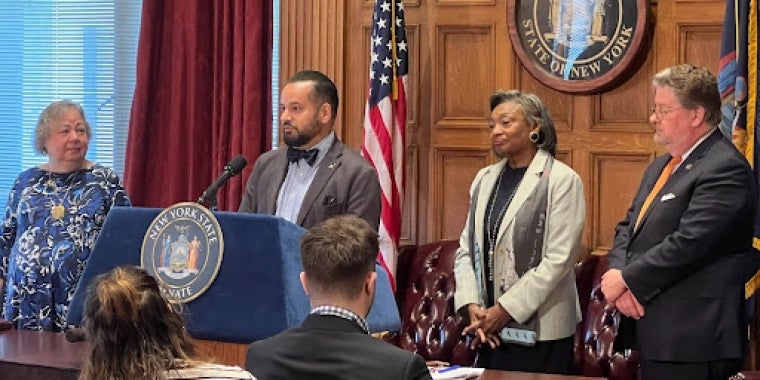
Serrano Fights For More Funding For Public Housing
The following is the text of a letter sent to Senate Majority Leader Joseph. L. Bruno, requesting a substantial increase of funding for the New York City Housing Authority.
Majority Leader Joseph L. Bruno
New York State Senate
LOB Room 909
Albany, NY 12247
As a State Senator representing a large population of residents of public housing, I write to request your support for including $70 million in the FY09 budget for the New York City Housing Authority (NYCHA). This represents our fair share of operating subsidies for the public housing that we helped build in the state legislature years ago.
As you know, NYCHA currently faces a large budget shortfall. This deficit has negative short- and long-term implications for public housing residents. The Housing Authority has made proposals and alterations that will close this budget gap, but at the expense of low-income New Yorkers. Changes have already led to rental increases and other fees for residents. Staff and services have also been reduced.
Last year, in our budget, New York State contributed $3.4 million in operating subsidies to assist in covering costs for the state-built public housing buildings – the first such commitment in 10 years. While a far cry from the $70 million we owe the city for this critical need, it was still precedent-setting.
Prior to his election, Governor Spitzer had promised public housing residents to assist in preserving the public housing stock. When he was encouraged to keep his pre-election pledge, he informed residents that not everything could be taken care of in his first year in office. For this reason, I believe last year's $3.4 million contribution must be seen as a first step to expand upon in future years. Unfortunately, this small amount did not even make it back into the Governor's Executive Budget.
Housing Authorities in other cities have been forced to sell, privatize or demolish their unfunded public housing developments. In New York State, we have the moral and fiscal obligation to not only save our public housing, but also improve it. This was a critical investment for our low-income constituents, and it remains so today.
I should add that last year's Shelter Allowance Bill, which will ultimately bring an additional $47 million to the NYC Housing Authority, was a positive step, but one that is far from solving our problems. The Shelter Allowance adjustment corrected an inequity of payment for public assistance recipients versus other residents. But the operating subsidies are a very different issue, and one in which we remain $70 million short.
While we continue to work hard to encourage the federal government and the New York City government to pay their fair share as well, the most persuasive argument we can make is by fulfilling our own responsibilities at the state government level, and supporting the very buildings we created years ago.
Sincerely,
José M. Serrano



